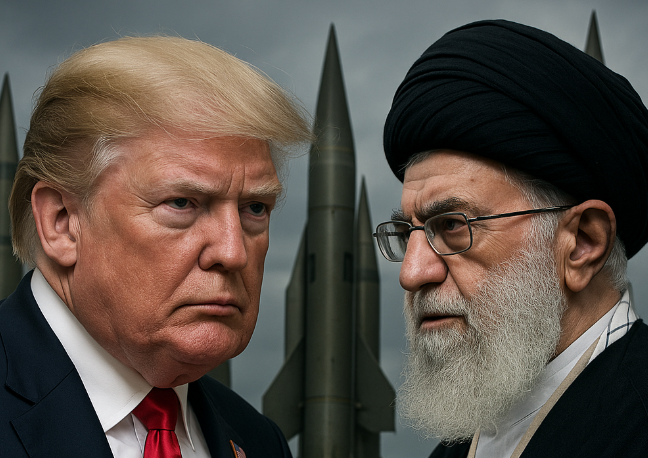
The Middle East is once again on the brink of a devastating escalation as Iran has launched a massive missile attack on Israel, directly responding to the recent US airstrikes on its nuclear facilities. The world is witnessing intense military action unfolding in real time, as Iranian missiles light up the night sky while they roar toward Israeli cities, marking one of the most dangerous escalations in the region’s history.
Following a bold announcement by US President Donald Trump that American B-2 bombers had successfully targeted and destroyed three major Iranian nuclear facilities, Tehran has wasted no time in unleashing a wave of retaliation. In a statement earlier, President Trump revealed that the US military had struck Iranian nuclear centers in a highly coordinated and precise operation. This aggressive move by Washington seems to have crossed Tehran's red line, triggering a ferocious response that threatens to spiral into a full-blown regional war.
Shortly after Trump’s announcement, Iranian leadership — including Supreme Leader Ayatollah Khamenei’s representatives and hardline officials — openly vowed to exact revenge that the United States would never forget. They declared that all American soldiers stationed across the Middle East — nearly 500 troops — along with American civilians, are now under direct threat and fully within Iran’s crosshairs.
The retaliation began swiftly. In a series of coordinated missile strikes, Iran launched an unprecedented number of ballistic missiles directly toward multiple Israeli cities. Shocking footage and images have emerged showing the terrifying sight of Iranian missiles slicing through the sky at great speed, closing in on their targets. The Iranian assault has caused widespread devastation, particularly in civilian areas of Israel.
The Israeli Foreign Ministry released harrowing videos showing the aftermath of these strikes — widespread destruction in residential neighborhoods, with burning buildings, shattered infrastructure, and massive explosions echoing across Israel. The cities of Haifa and Tel Aviv have been among the hardest hit. Eyewitness reports confirm that northern and central regions of Israel are bearing the brunt of the Iranian barrage, with many areas left in ruins as the missile strikes continue.
The scale and coordination of the Iranian attack suggest that this is not a one-time event but a sustained campaign of strikes designed to punish both Israel and indirectly the United States. Experts believe that Iran's message is clear: any attack on its sovereignty, especially its nuclear program, will be met with a fierce and immediate response, regardless of the consequences.
Meanwhile, Israel has been actively urging the United States to escalate its military involvement in the conflict. Reports suggest that Israel had been pressuring the US to conduct the strikes on Iran’s nuclear facilities, believing that American military involvement would weaken Tehran’s growing nuclear ambitions. However, this move may have backfired, as it has now triggered a broader conflict that threatens to engulf the entire Middle East.
The situation is rapidly deteriorating. With every missile strike, the possibility of a wider regional war becomes more likely. Iran has made it clear that it does not plan to limit its retaliation solely to Israel. The numerous American military bases scattered across the Middle East may soon find themselves under threat of similar strikes. Observers warn that the current conflict could potentially spread to American soil if Iran decides to target US assets beyond the Middle East.
As tensions soar, the entire world watches anxiously to see whether diplomacy can intervene before the conflict spirals further out of control. With Iran vowing more vengeance, Israel on high alert, and the United States deeply involved militarily, the stakes could not be higher. This is not merely a battle between two nations — it now threatens to destabilize the entire region and potentially draw in global powers, escalating into a conflict of unprecedented scale.
The coming days will be crucial in determining whether this violent confrontation remains contained within the Middle East or expands into a much larger geopolitical crisis with global ramifications.
Disclaimer:
This article is for informational purposes only and is based on current media reports and publicly available information. The situation is rapidly evolving, and details may change as new information emerges. The views expressed do not reflect any political stance. Readers are advised to verify facts from official government sources before drawing conclusions.




